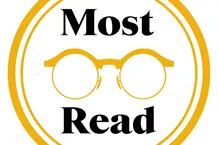Christie’s reviewed and clarified their policy after recent publicity surrounding a sale of posters, where it was claimed that a consultant who had advised on the sale had had an unfair advantage over competing bidders when he bought items in it.
The auctioneers told the Antiques Trade Gazette that they had already planned to go over their policy before the complaint, and in a statement issued on April 19 they said: “As you know our consultants have always been required to avoid placing themselves in a position of conflict of interest. However, having some time ago identified a need for clarification in relation to bidding we have now communicated guidelines to our consultants.”
The guidelines are as follows: “Consultants may not directly or indirectly bid on any lot where they have had any part in cataloguing the lot or for which they know the reserve price; the identity of the consignor in circumstances where the information is not published in the catalogue or any other material information relating to the value of the property that is not available to the public.”
Asked how the guidelines had been expressed before the revision, a Christie’s spokesman said that it was that “consultants may not place themselves in a position of conflict of interest when buying or selling”.
The newly detailed guidelines are clearer and more specific but a Christie’s spokesman insisted that the fundamental rules had not varied. “What we want to ensure by these rules is that if they have access to non-public information then they (consultants) do not bid”, he told the Gazette.
Christie’s guidelines are similar to those issued by Sotheby’s to their consultants, which are, said the auctioneers, the same as for the company’s employees, “that if you are privy to any non-public information about a sale then you may not bid”.
In addition, should a consultant wish to bid in a Sotheby’s sale where they are not privy to non-public information, they must go through the same special procedures as employees: the completion of special forms and disclosure of information.
A spokesman for Bonhams said: “Bonhams have a strict compliance policy. The company does not permit any consultant to deal in objects which have been purchased in any sale in which he or she has acted as a consultant.”
While the rules are now clear, it still leaves the auction houses with a paradox: in the narrower fields of collecting, the best consultant expertise may well belong to the main dealers in that field who they would expect to be bidding on a sale.
Christie’s clarify rules on consultants bidding
CONSULTANTS at Christie’s have had it spelled out that they may not bid on lots when they have been privy to confidential information about them through their consultancy.




